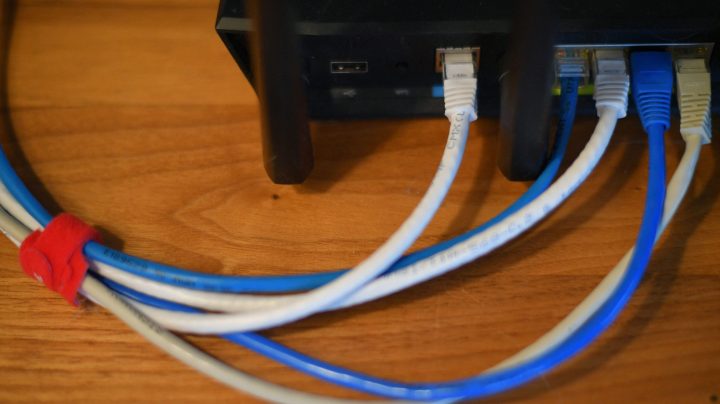
Internet providers like AT&T and Verizon lobby against lower broadband prices
Internet providers like AT&T and Verizon lobby against lower broadband prices

When President Joe Biden delivered his State of the Union speech last month, he touted his administration’s efforts to close the digital divide and connect all Americans to affordable, high-speed internet by 2030. But as state and federal officials figure out how to spend the nearly $43 billion grant — the largest ever investment in broadband infrastructure — internet providers like AT&T and Verizon have been aggressively lobbying against lower prices for consumers.
For more on this, we turn to Tony Romm, economic policy and accountability reporter at The Washington Post. He recently wrote about telecom firms’ fight against price caps for low-income customers. Romm spoke with “Marketplace Morning Report” host David Brancaccio. The following is an edited transcript of their conversation.
David Brancaccio: I remember 2022. The law had been passed the year before and the Biden administration came out with these maps about who gets the broadband money. The internet companies have been busy. What have you found?
Tony Romm: As officials have looked to put their money towards closing the digital divide, internet providers like AT&T and Verizon have been very aggressive in lobbying back. And they’ve specifically targeted any states that have tried to be very aggressive in seeking price changes — lower prices for poorer customers, for those companies that would collect a proportion of this federal money.
Brancaccio: Have the telecom companies been, from their point of view, successful dampening the effect of what was intended?
Romm: In a number of things, we’ve certainly seen them back down when they have proposed really aggressive plans to lower prices. So, for example, Virginia was one of the states that initially had proposed doing what the Biden administration asked — they wanted to lower broadband prices to $30 a month for low-income customers in areas that would be served by new federal infrastructure money.
Well, the telecom companies fought back aggressively. AT&T went as far as to threaten litigation. And ultimately, Virginia dropped that idea in the most recent version of the plan it submitted to the federal government for approval. So there are some places where this lobbying has been effective. But the final answer on whether this is going to affect those dollars, that’s something that still remains to be determined.
Brancaccio: I mean, the picture emerging from your reporting is that the telecom companies seem pleased to take federal money to help expand the network and bring faster internet connections to places where the connections are more pokey but are unhappy with tougher rules to actually make it affordable for low-income people.
Romm: That’s the exact argument you’re hearing from various public interest watchdogs, from members of Congress. This concern, this fear that the U.S. government is making the largest ever pot of money available for broadband access, but these internet providers aren’t willing to adhere to any sorts of conditions in exchange for that taxpayer-funded windfall.
But from the perspective of the internet providers, that’s not what’s happening here. They point to a provision in the 2021 Infrastructure Law that they helped create, in fact, that prohibits the U.S. government from doing anything around rate regulation. Now, the U.S. would counter that’s not what it’s doing here. It’s not setting prices for every broadband customer in America, it’s just imposing conditions on a grant. But those internet providers have held firm to this idea that those conditions violate the law, and they have signaled that they’re going to do everything they can to fight against it.
There’s a lot happening in the world. Through it all, Marketplace is here for you.
You rely on Marketplace to break down the world’s events and tell you how it affects you in a fact-based, approachable way. We rely on your financial support to keep making that possible.
Your donation today powers the independent journalism that you rely on. For just $5/month, you can help sustain Marketplace so we can keep reporting on the things that matter to you.

















